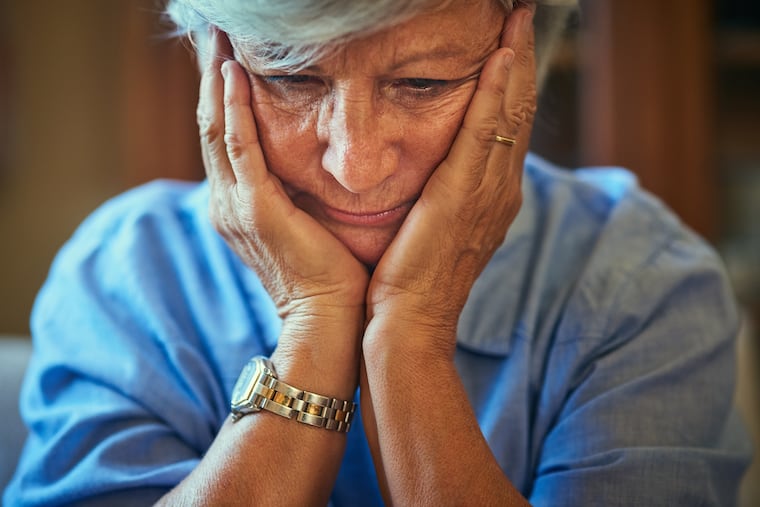Nothing prepared her for the emotional toll of a breast cancer diagnosis | Patient perspective
One day you’re a healthy 65-year-old woman enjoying yoga and hiking, vacations planned, exciting volunteer projects on-going and then, out of nowhere, a nuclear bomb hits: the yearly mammogram shows something very suspicious.

One day you’re a healthy, 65-year-old woman with some common aches and pains, but enjoying yoga and hiking, kids successfully launched, Social Security check arriving, vacations planned, exciting volunteer projects on-going and then, out of nowhere, a nuclear bomb hits. For the first time ever, the yearly mammogram shows something very suspicious.
I had Stage 2 breast cancer.
Quickly, multiple doctor visits were scheduled, a biopsy performed, lumpectomy done, four months of chemotherapy to follow, then radiation and six months of a “targeted” drug called Herceptin.
What? How did this giant tractor-trailer hit me when I always looked both ways before crossing the street? I asked the breast surgeon whether the wrong name was mistakenly written on the pathology report. She said no.
My terrible family history of heart disease convinced me that I would inevitably die of a heart attack. Cancer was not on my radar. But with four — yes, four — additional opinions from the best oncologists around, I had to accept what had barreled down the highway toward me at 100 mph.
Soon I’d be hairless, nauseated, exhausted and experiencing all the typical, awful side effects from chemotherapy. Little did I know I’d also develop mouth sores, painful fingernails and toenails, bone pain, depression, and digestive issues way too graphic to describe here. Oh, and finding a head covering that didn’t make me look like a fortune teller in a Pee-wee Herman movie was next to impossible. And has anyone ever heard of chemo brain? The chemo meds I’m currently taking make me so confused and unsure of myself that some days I’m afraid to even drive my car.
But nothing compares to the emotional toll this shocking diagnosis took on me.
At times, the anger was all-consuming. I didn’t just ask “Why me?” I screamed it out loud. I’m an upstanding, productive citizen. I don’t have time to sit around and convalesce. I have to fix things! Everywhere!
I tried to find a good therapist but that often felt like trying to find the cure for cancer itself. My medical teams gave me endless data and statistics regarding the best treatments for my form of breast cancer. And I’m grateful to them. But did they empathize and help with the emotional part? No. In fact, one oncologist wrote in her report, “Patient could benefit from psychiatric visit.” That felt like an understatement, Was it unusual to be upset after she hit me with the news of what I had to endure?
Finally, I found good counselors and befriended some wonderful cancer survivors who I can share my frustrations with. And my family has been an endless source of comfort. My husband should be recommended for sainthood (he puts up with my incessant river of tears), my children do everything I ask of them, my siblings are terrific listeners and don’t call me a “warrior” or tell me I’m “brave” (common terms of encouragement that aren’t really helpful). My kind friends bring me food, presents, flowers, and words of comfort on an almost daily basis. I am so fortunate to have all of these people.
And you know what else I have? Medicare. I would say, with no hesitation, that without Medicare, I probably would not have survived thus far. Medicare pays for almost everything with no arguments, referrals or other problems. I’m thankful that I am not subjected to the added stress of figuring out how to pay for my care.
My oncologists and breast surgeons are brilliant medical providers. But they need a better system of helping patients with their emotional needs — from the very minute we first scheduled a visit.
While still undergoing chemotherapy, there are days I feel as if I’m hanging from a skyscraper by my fingertips. I’m also very fearful for what the future might bring. But I put one foot in front of the other and keep going.
Claire Gawinowicz lives in Oreland, Pa.